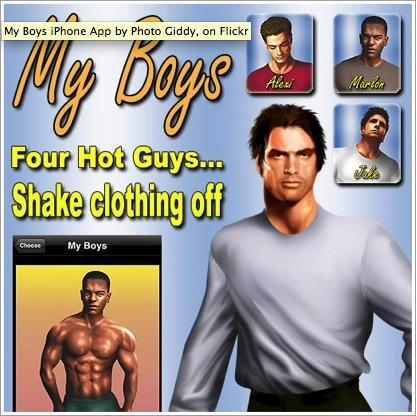Recently, roughly 5,000+ apps got yanked from the Apple App Store. The offense? "Overtly sexual content." According to SVP Phil Schiller, “It came to the point where we were getting customer complaints from women who found the content getting too degrading and objectionable, as well as parents who were upset with what their kids were able to see,” he said.
On Today’s iPhone, Assistant Editor Cam Bunton made a good point in a post titled “My view on Apple’s booby ban…”:
I’m relieved Apple has taken this step. I write quite a few reviews for apps, which often means scouring through different sections in the store to find the latest stuff. Only a couple of days back I checked out the “entertainment” section and to my great irritation was confronted with “Asian beauties 1-100million” (exaggerating somewhat there)… So the apps were getting out of control, getting everywhere, getting in the way, reducing the overall quality of apps in the store and cluttering it all. All I have to say about the ban is “Thank you Mr. Jobs.” If people want to sulk or look at bikini wearing girls from Thailand, go on to Google Images and type in “Thai girls in bikinis.” (Click the post title to read the full article.)
While I’d never come out in favor of censorship, I do see that there are some valid arguments that could be made for a little judicious pruning of the App Store entries. Logical points, sound reasoning, it all makes perfect sense. But there’s a nagging issue here for some, and it’s this: While thousands of iPhone apps were abruptly kicked out, some were allowed to remain. Sexually suggestive — even kind of explicit — apps like SI Swimsuit from Sports Illustrated, Playboy and FHM are still in the store.
And according to iPhoneSavior.com, the content in the remaining apps — which encompasses images and video — is actually saucier than the stuff in "My Boys," an app that was booted for showing muscle-bound, computer-generated mockups of men. Shake the app, and they get down to their skivvies and speedos.

Okay, hold on a second: Does the company really think that digital dudes in tight shorts are considered racier than this?

(Okay this image, while not exactly tame, isn't even the most risqué of the lot. And no, I'm not posting anymore here. C’mon — This is PhoneDog, not HornDog. Sorry, but this is as racy as you’re going to get here.)
This was Schiller’s explanation: Apple weighed various factors, including what the source was and the intention of the app. “The difference is this is a well-known company with previously published material available broadly in a well-accepted format,” he said. Schiller went on to say, “We obviously care about developers, but in the end have to put the needs of the kids and parents first.”
The debate over whether to censor or not seems almost beside the point here. This explanation seems extremely inconsistent. Leaving “well-known companies” alone, even when their apps are racier than others that have been booted, doesn’t seem to be putting “the kids and parents first.” It’s like the company is picking on the little guys, but leaving the big boys — with their potentially big future distribution deals — alone.
Some think this double standard is at least partly (or even completely) due to the iPad, which is launching in a few weeks. Apple’s publishing relationships for “the big iPod Touch” have been pretty well publicized. But does that justify this blatant show of favoritism? If you’re a numbers cruncher, it might.
Media folks are chewing over the success of the app version of Sports Illustrated’s 2010 Swimsuit issue. It’s been topping the charts in the App Store’s sports category for the last week — it even beat out the NBC app covering the Olympics, which is the biggest current sports-related news.
The free SI app has been downloaded 411,648 times since it launched, and has tempted 7.8 percent of users over to the paid $1.99 version. If you do the math, this comes to $64,000 (which doesn’t even include advertising deals). This places the paid SI Swimsuit app as the 33rd highest-grossing mobile app in the App Store right now. And the free version is the 13th most popular app in the whole store. These numbers could go up even more once the iPad debuts. The temptation of seeing all that content on a bigger screen could offer an added boost.
In the end, I never thought I’d be one to speak out in favor of skin purveyors, but this just seems like yet another example of small-time developers being given the short shrift. While I can’t say I’m sad to see tasteless content removed (though it does raise some censorship flags that I’m not 100 percent comfortable with), I do think that if Apple wants to remove overtly sexual content, it should make that consistent across the board. Or at least offer a reasonable explanation that isn’t so transparently subjective and self-serving.
What do you think? Did Apple make the right choice by pulling these apps? And do you agree with its decision to leave the large media groups alone, or do you think they should’ve been pulled too? Weigh in below.
Via: Today’s iPhone, MacRumors, min Online, iPhone Savior
UPDATE: Here’s an interesting twist: It seems Apple has now created a new “Explicit” category in the store. For more on this, click to go to the post on Today’s iPhone.